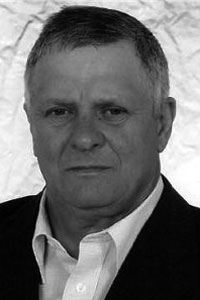Owen McAuley was raised on the family farm near McAuley, Manitoba. In 1968 he received a Diploma in Agriculture from the University of Manitoba. After a year in the Alberta oil industry, he returned to McAuley, married Anna Mae Marshall, and together they raised three children, Laurie, Karen and Scott. In 1991 they were presented with the Manitoba Farm Family of the Year Award by the Red River Exhibition Association.
Owen’s early years on the farm made him realize the many ways that the agricultural industry was being impacted by factors beyond the farm gate. Thus began his involvement in organizations which focussed on addressing issues affecting prairie farmers.
Owen was involved with the Keystone Agricultural Producers (KAP) from its inception and served on its executive committee for several years. In 1990, the federal government asked representatives of the seventeen farm groups across Canada to design a safety net program. This led to the implementation of the Gross Revenue Insurance Program (GRIP) and the Net Income Stabilization Account (NISA) programs. The participating groups asked Owen to sit on the implementation committees of both programs to ensure their intent was followed in the program delivery.
Owen became an active participant on many boards and committees at the provincial and national levels and a sought-after speaker. He advised provincial and federal Ministers of Agriculture. As a member of the Canadian delegation reviewing the NAFTA agreement, he participated in forums throughout North America. He served his community for over a decade as a councillor for the RM of Archie and chaired the Virden Veterinary Services District.
The McAuley family operates a grain farm plus a cow-calf and feeder cattle enterprise and are partners in a local hog operation. Owen currently serves on the Canadian Agri-Food Policy Institute and sits on the Saskatchewan Ethanol Development Committee.
Owen is a visionary who has the rare ability to focus on the long term strategic goals for the industry and at the same time translate this vision into the practical consequences and requirements of that vision. He is willing to challenge existing positions when events and conditions change. He is a “begrudging” proponent of change but believes innovation is the best means for the agricultural industry to survive in the evolving global environment. Owen is as comfortable in a boardroom or behind a podium as he is on the seat of a tractor.


